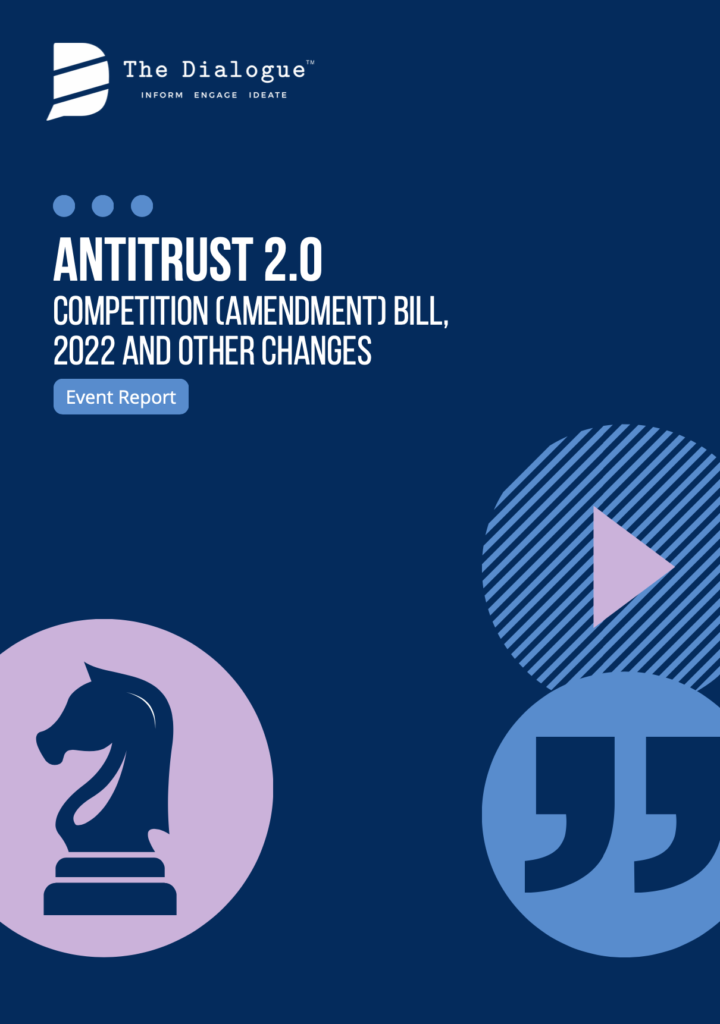The Dialogue organised a roundtable discussion on competition law ‘Antitrust 2.0’ on November 1, 2022.
The discussion revolved around three key themes: i) Changes pertaining to anti-competitive agreements, abuse of dominant position, and merger control in the Competition (Amendment) Bill, 2022 (the Bill); ii) ex-ante regulation and gatekeeping rules and; iii) Introduction of Commitments and Settlements mechanisms by the Bill.
The first session included discussions on the impact of the omission of Intellectual Property Rights (IPR) exemption under section 4, i.e. abuse of dominance in the Bill. Panellists agreed that the omission might potentially deter companies from taking the risk of innovation. The omission of effects-based tests to evaluate abuse of dominance cases from the 2022 Bill, the introduction of hub and spoke cartels and deal value thresholds were also discussed.
The second session started with the speakers’ valuable insights on the EU’s ex-ante Digital Markets Act (DMA) framework. They emphasised the trade-off between the inflexibility and uncertainty of the DMA. It was stated that the DMA’s inflexible nature could lead to more regulatory certainty. The panel further deliberated the need for a similar kind of framework in the Indian context and concluded that any framework should be suited to the Indian market and policy realities.
In the third session, the panellists discussed the nuances of the settlements and commitments mechanism introduced by the Bill. The panel agreed that it is a good move and could do with further clarity on aspects related to admission of guilt, timelines, and parties’ choice to withdraw from a deal. The panel then moved on to a Q&A round where participants actively asked questions to different panellists.
